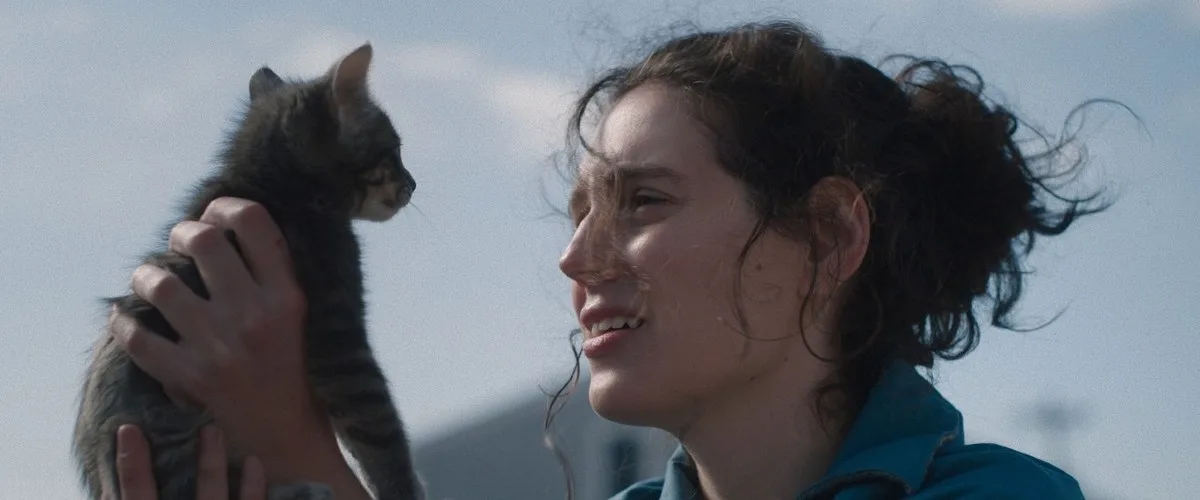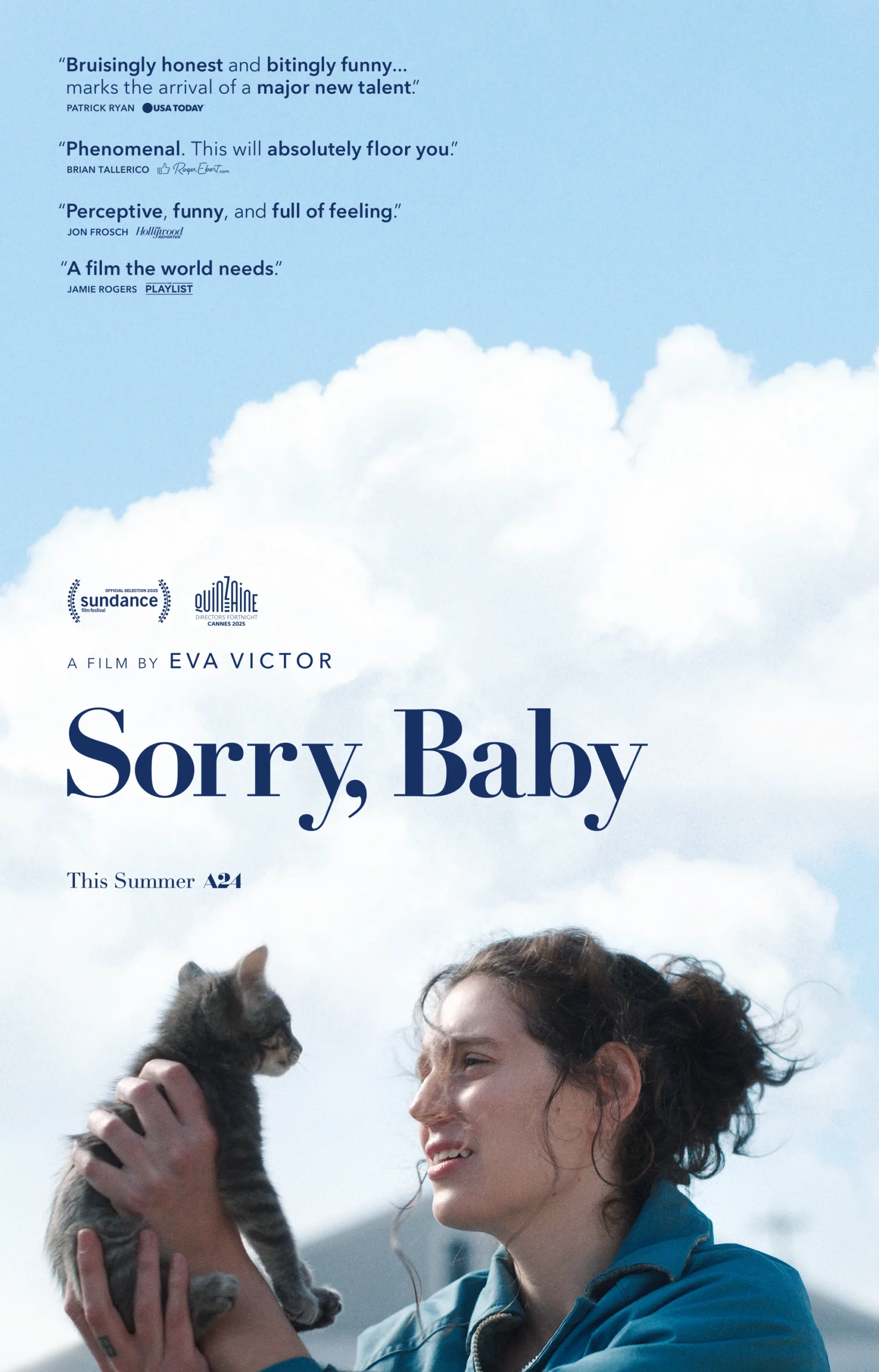In life, bad things happen, and if you’re lucky, life moves on. You learn to move about the world with this Bad Thing, maybe despite (or because of) it, but there is a time before the Bad Thing and an after. It is an experience that leaves you breathless, rocks you to your foundations, and forces you to question everything that led up to that moment. At some point, with enough distance, finally, the Bad Thing stops intruding into your memories as much as it once did. It falls off your resume of recent events, even if you still remember it in the margins.
Eva Victor’s “Sorry, Baby” is not a lighthearted comedy nor a dour drama, but a somewhat irreverent tribute to everyday survival after a Bad Thing. In the film, Victor plays Agnes, a newly minted tenured professor at her old grad school, welcoming back an old friend, Lydie (Naomi Ackie), just as her friend has big news to share: she’s pregnant. Their shared past is hinted at in various points throughout this chapter, but this is mostly a joyous reunion filled with jokes and camaraderie. The story then jumps back in time to Agnes’ days as a promising grad student whose brilliance is noticed by her cohort and her professor, Decker (Louis Cancelmi). He invites her to his home when the Bad Thing happens, and Agnes, over the next several chapters and years, adapts to her new post-Bad Thing reality.
Victor, who gained attention online with short comedy videos, graduated from creating pithy, clever bits to explore something much more complicated and emotionally charged with A24’s “Sorry, Baby.” Theirs is a tough balancing act, of finding humor in painful moments, finding kindness from strangers in the middle of a panic attack, and finding reprieve from the haunting feeling that you will never escape the Bad Thing, like sexual assault. Victor, who wrote and directed their feature debut, writes the dialogue with a certain affectation that may sound unreal. Still, in a way, that sense of unreality softens the film’s more serious edges. Throughout their black comedy-drama chimera, they find pockets of levity where the audience can share a laugh about what comes after the Bad Thing, as the characters on-screen discover the absurdity of Agnes’ experience, from insensitive doctors to useless authority figures. Agnes is forced to figure out for herself what her survival looks like as she navigates through anxiety-inducing public times and private quiet moments.
Victor’s thoughtful approach also extends to their performance as Agnes and the other characters in her world. Victor brings back the deadpan, offbeat humor that made them a sensation on social media with an introspective side, unafraid to delve into vulnerable, emotional scenes and using humor to mask their character’s pain. As Lydie, Ackie is a perfect foil for Victor’s Agnes, someone who matches their quick jokes with a wry smile and an equally timed response, but can jump to Agnes’ defense when she needs the support. As the story’s villain, Cancelmi’s Decker is almost understated in his few on-screen scenes—that everyday Bad Things can happen anywhere and from anyone—but is just charming and kind enough to lead a student to trust him. It’s in the dialogue around him that we get a better sense of who this guy really is.
Agnes finds some solace in the arms of a neighbor, Gavin (Lucas Hedges), but even he shows his limitations when he brings up a future she’s either not ready for or doesn’t want. Their scenes feel noticeably uncertain, but foreground Agnes’ silence as another man tries to shape her life’s path. The film’s best scene stealer is a jealous fellow student turned fellow non-tenure track professor named Natasha (Kelly McCormack), who incidentally earns some of the movie’s biggest laughs with her selfishness, but for whom we learn not to judge as harshly.
Victor’s many behind-the-scenes collaborators include Barry Jenkins and his Pastel production company; cinematographer Mia Cioffi Henry who captures Agnes’ rustic world of a small, windswept New England college town in a way that feels cozy yet chilly, much like the region itself; and costume designer Emily Constantino, whose outfits let the big puffy jackets dominate the landscape along many a wool sweater vest and well-loved oversized T-shirts used as PJs.
Victor’s offbeat film may not resonate with everyone, but their approach to this story and its heavy topic is impressive. It feels refreshing to see characters discuss this taboo topic without making it the defining focus of their lives. Agnes has a friend who adores her, a situationship, a career, and colleagues who like and don’t like her. The crux of the film hinges on her moving on, in fits and starts, but eventually coming to the place where she can hold her best friend’s baby and muse on how much pain lies ahead of her in life but offers to be there to support her, just as her mother Lydie had done for her during that dark time. Sometimes, being there for each other is all we can do to survive each bad chapter that comes our way.




















